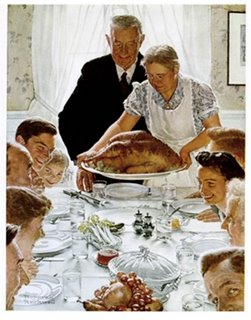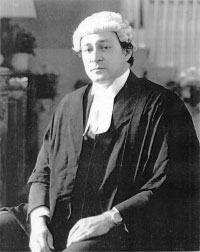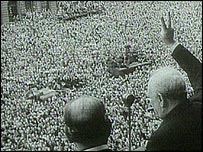5 characteristics of a healthy church
The study of human growth is known as auxology. Growth and height have long been recognized as a measure of the health and wellness of individuals, hence part of the reasoning for the use of growth charts. For individuals, as indicators of health problems, growth trends are tracked for significant deviations and growth is also monitored for significant deficiency from genetic expectations.
Height is determined by the complex interactive combination of genetics and environment. Genetic potential plus nutrition, minus stressors is a basic formula.
Diet (in addition to needed nutrients; such things as junk food and attendant health problems such as obesity), exercise, fitness, pollution exposure, sleep patterns, climate and even happiness (psychological well-being) are other factors that can affect growth and final height.
What does Christian maturity look like?
The words “still more and more” indicate something of the Philippians’ present yet partial enjoyment of the graces for which Paul prays on their behalf. The subsequent clauses express, with progressive significance, the goals that the apostle sets before his readers.
I. Increasing in love which is insightful (v. 9)This is a prayer for maturity, and Paul begins with love. After all, if our Christian love is what it ought to be, everything else should follow. He prays that they might experience abounding love and discerning love.
It was Paul’s prayer that the Philippians’ love for other believers would abound, run over as a cup or a river overflows.
Donald W. Burdick gives three characteristics of this godly sort of love:
It is spontaneous. There was nothing of value in the persons loved that called forth such sacrificial love. God of His own free will set His love on us in spite of our enmity and sin. [Agape] is love that is initiated by the lover because he wills to love, not because of the value or lovableness of the person loved.
It is self-giving. [Agape] is not interested in what it can gain, but in what it can give. It is not bent on satisfying the lover, but on helping the one loved whatever the cost.
It is active. [Agape] is not mere sentiment cherished in the heart. Nor is it mere words however eloquent. It does involve feeling and may express itself in words, but it is primarily an attitude toward another that moves the will to act in helping to meet the need of the one loved.
This sort of God-given love is not easily counterfeited. Look at all that is involved:
love for God Himself (1 Cor. 16:22);
love for the brethren (1 Jn. 3:14);
love of truth and righteousness (Rom. 6:17–18);
love for the Word of God (Psa. 1:2); and even
love for one’s enemies! (Matt. 5:44).
The true test of genuine Christianity is how believers “love,” the generous, warm, costly self-sacrifice for another’s good.
John’s epistle makes godly love a kind of litmus test for the true Christian: “The one who does not love does not know God, for God is love” (4:8).
With regard to that statement, Martyn Lloyd-Jones observed,
John does not put this merely as an exhortation. He puts it in such a way that it becomes a desperately serious matter, and I almost tremble as I proclaim this doctrine. There are people who are unloving, unkind, always criticizing, whispering, backbiting, pleased when they hear something against another Christian. Oh, my heart grieves and bleeds for them as I think of them; they are pronouncing and proclaiming that they are not born of God. They are outside the life of God; and I repeat, there is no hope for such people unless they repent and turn to Him. 7
Ephesians 4:25-5:2 (NIV)
25Therefore each of you must put off falsehood and speak truthfully to his neighbor, for we are all members of one body. 26“In your anger do not sin”: Do not let the sun go down while you are still angry, 27and do not give the devil a foothold. 28He who has been stealing must steal no longer, but must work, doing something useful with his own hands, that he may have something to share with those in need. 29Do not let any unwholesome talk come out of your mouths, but only what is helpful for building others up according to their needs, that it may benefit those who listen. 30And do not grieve the Holy Spirit of God, with whom you were sealed for the day of redemption. 31Get rid of all bitterness, rage and anger, brawling and slander, along with every form of malice. 32Be kind and compassionate to one another, forgiving each other, just as in Christ God forgave you. 1Be imitators of God, therefore, as dearly loved children 2and live a life of love, just as Christ loved us and gave himself up for us as a fragrant offering and sacrifice to God.
II. Investigating liberties to focus on excellence (v. 10a)The idea of testing is clearly in view in the Greek word dokimazō, translated “discern.” The testing is with a view to approving. The word was used in testing metals and coins, to determine whether they met the specified standards.
Life is filled with choices:
British prime minister Herbert Asquith once spent a weekend at the Waddesdon estate of the 19th-century Rothschild family. One day, as Asquith was being waited on at tea time by the butler, the following conversation ensued: “Tea, coffee, or a peach from off the wall, sir?”
“Tea, please,” answered Asquith.
“China, India, or Ceylon, sir?” asked the butler.
“China, please.”
“Lemon, milk, or cream, sir?”
“Milk, please,” replied Asquith.
“Jersey, Hereford, or Shorthorn, sir?” asked the butler.
Today in the Word, May 5, 1993
Possessing abounding love would enable the Philippians to give approval to things of the greatest value and importance. Conversely they would disapprove things of lesser significance. Most of the choices that a spiritual believer faces are not between morally good and morally evil things but between things of lesser and greater value. The things that we choose because we love them reflect how discerning our love really is.
“Do not be conformed to this world, but be transformed by the renewing of your mind, so that you may prove what the will of God is, that which is good and acceptable and perfect” (Rom. 12:2).
Ephesians 5:8-10 “walk as children of Light (for the fruit of the Light consists in all goodness and righteousness and truth), trying to learn what is pleasing to the Lord” (Eph. 5:8–10),
Thessalonians 5:21 “examine everything carefully; hold fast to that which is good”
Our heart condition is a key factor in the choices we make:
A Sunday school teacher asked if any scholar recollected an instance in Scripture of anyone making a bad choice through lack of discernment:
“I do,” replied a boy, “Esau made a bad choice when he sold his birthright for a mess of pottage.”
A second said, “Judas made a wrong choice when he sold his Lord for thirty pieces of silver.”
A third replied, “Ananias and Saphira made a bad choice when they sold their land and then told Peter a falsehood about it.”
A fourth observed. “Our Lord tells us that he makes a bad choice who, to gain the whole world, loses his own soul.”
What value do you place on things?
Jesus put it this way—where your treasure is, there your heart will be also. Where’s your treasure? Look at your life and ask what you emphasize in life, in energies, in finances, in time, in discussion. Measure that up with the revelation of God’s word and ask if those things are God’s priorities.
Years ago the son of a wealthy American family graduated from Yale University and decided to go out to China as a missionary for Jesus Christ. His name was William Borden. Many of his friends thought him foolish to give up so much of this world’s goods and his future to go there. But Borden loved the Lord Jesus Christ, and he wished to serve him. After only a short time on the field, and before he even reached China, Borden contracted a fatal disease and died. He had given up everything to follow Jesus. But at his bedside his friends found a note that he had written as he lay dying: “No reserve, no retreat, and no regrets.” Borden had given up everything, but he had found a treasure that was beyond words.
III. Integrity of life that passes test of scrutiny from God and neighbor (v. 10b)Paul also prays that they might have mature Christian character, “sincere and without offense.” The Greek word translated “sincere” may have several meanings. Some translate it “tested by sunlight.” The sincere Christian is not afraid to “stand in the light!”
When there was a crack in a statue or a vase, a dishonest dealer would fill it in with wax so that one couldn’t tell that it had been broken. Then he would sell it as a genuine, perfect piece. An unsuspecting man would buy it, take it to his villa, and display it in his garden. The next hot day he would walk out and, lo and behold, the wax would be running out of a crack in that lovely art treasure! Finally the reputable art dealers began to put on their material the word sincerus, meaning without wax. In other words, they guaranteed it was a perfect piece.
The renowned nineteenth-century Scottish preacher Alexander Maclaren wrote, “The world takes its notions of God, most of all, from the people who say that they belong to God’s family. They read us a great deal more than they read the Bible. They see us; they only hear about Jesus Christ” (First and Second Peter and First John [New York: Eaton and Maines, 1910], 105).
IV. Intense holiness derived from a vital union w/ Christ (v. 11)Paul prays that in the hearts and lives of the Philippians there may be a rich spiritual harvest, consisting of a multitude of the fairest fruits of heaven; such as, love, joy, peace, longsuffering, kindness, goodness, faithfulness, gentleness, self-control (Gal. 5:22, 23), and the works which result from these dispositions.
V. Intention to direct all efforts to God's glory (v. 11) Philippians 3:7-14 (NIV)
7But whatever was to my profit I now consider loss for the sake of Christ. 8What is more, I consider everything a loss compared to the surpassing greatness of knowing Christ Jesus my Lord, for whose sake I have lost all things. I consider them rubbish, that I may gain Christ 9and be found in him, not having a righteousness of my own that comes from the law, but that which is through faith in Christ—the righteousness that comes from God and is by faith. 10I want to know Christ and the power of his resurrection and the fellowship of sharing in his sufferings, becoming like him in his death, 11and so, somehow, to attain to the resurrection from the dead. 12Not that I have already obtained all this, or have already been made perfect, but I press on to take hold of that for which Christ Jesus took hold of me. 13Brothers, I do not consider myself yet to have taken hold of it. But one thing I do: Forgetting what is behind and straining toward what is ahead, 14I press on toward the goal to win the prize for which God has called me heavenward in Christ Jesus.










